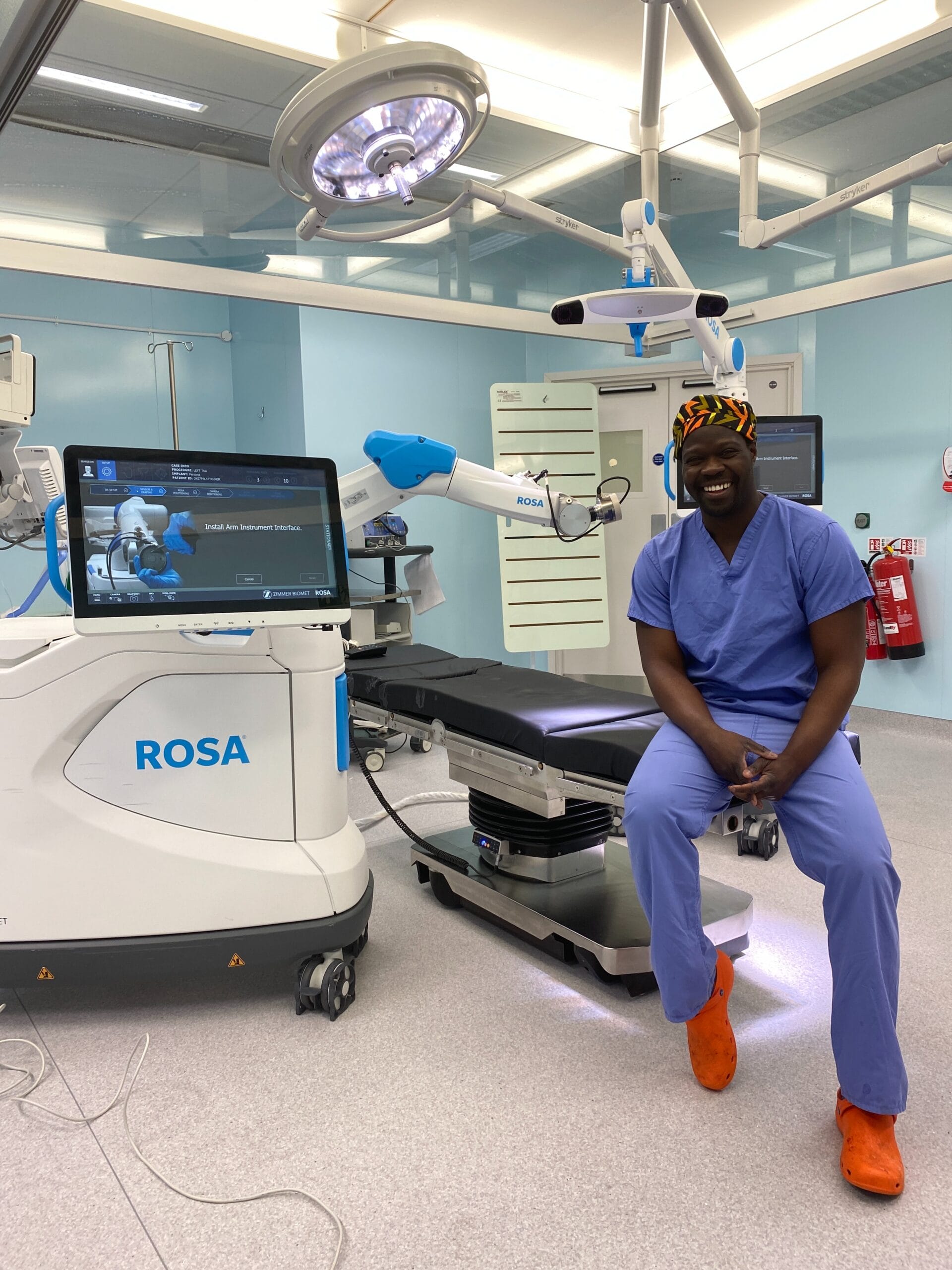Knee replacement surgery is a common procedure carried out to replace or resurface a worn, damaged or diseased knee joint with an artificial implant. In 2016, 108,713 knee replacements were carried out across England, Wales, Northern Island, and the Isle of Man[i].
1. When should I have a knee replacement?
If you have been living with severe knee pain that has not been successfully treated with pain medication, physiotherapy, steroid injections or arthroscopic procedures, you may be referred for a knee replacement.
The majority of cases for replacement procedures are related to patients living with osteoarthritis or inflammatory arthritis, however other conditions such as bone deformity and disorders, gout, or severe injuries to the knee joint, can also result in the need for replacement surgery.
2. How long does a knee replacement procedure take?
Depending on your requirements, you may be referred for a total knee replacement, in which both sides of the knee joint are replaced, or a partial knee replacement, in which only one side of the joint is replaced.
A total knee replacement will usually take an hour to 90 minutes. For the latter case, your procedure and subsequent stay in hospital will be shorter; however, your surgeon will advise you of this during your consultation.
3. Are there any risks or complications around knee surgery?
Knee replacement procedures are considered very safe and the chance of infection is typically less than 1%.
As with any surgery, there are possible risks associated with the operation, including possible side effects from anaesthesia or more general complications, such as:
- Nerve damage
- Pain
- Stiffness
- Blood clot
You can read the full list of risks in our patient guide to knee replacements.
4. How long will my knee replacement last?
Generally, the majority of total knee replacement patients can expect the replacement to last for around 20 years or longer, although every case will vary [ii].
If you have only had a partial joint replacement, there is a chance that you will require a revision sooner than this.
5. How do I prepare for knee surgery?
If you will be undergoing knee surgery, the more you can plan ahead, the better your experience will be.
Before your appointment, you’ll have a pre-admission appointment with our clinical team to assess your general health, discuss any potential risks and talk through anaesthetic options. This will also provide an opportunity to discuss any further things you can do to prepare, such as maintaining a healthy diet, reducing your alcohol consumption and ceasing smoking in the run up to the replacement.
It’s important to continue any exercises you may have been doing to stimulate the mobility of your knee joint. Our patient guide also provides a full list of pre-operation exercises you can carry out gradually; these are beneficial for strengthening your recovery process, as well as your entire body – following knee surgery, you will rely on your arms to help you move about and support your balance.
6. What aftercare is needed for a knee replacement?
The days and weeks following your knee replacement will be crucial for maintenance exercises to ensure your recovery goes smoothly and that you are as mobile as possible with limited movement. We can advise you on the exercises you can carry out during bedrest, seated in a chair and whilst you’re recovering at home.
7. When will a knee replacement feel normal?
Recovery time will vary from patient to patient, but you can generally expect to rely on crutches or a walking frame for around six weeks. In some cases, patients can experience swelling for up to or longer than three months. It’s always best to avoid strenuous exercises or vigorous activity to ensure the best care for the new knee.
If you have any questions about our procedures and would like to speak to a member of our team, please do not hesitate to call us on 01892 620939 or get in touch here.
What makes Horder Healthcare unique
Horder Healthcare is committed to providing the very best quality of care for our patients and customers. We are continuously working on improving and reducing risks and this is reflected in our consistently high CQC results, patient satisfaction questionnaires and minimal levels of infection.
We are a charity
We reinvest our profit to benefit more people and help us achieve our aim of advancing health.






